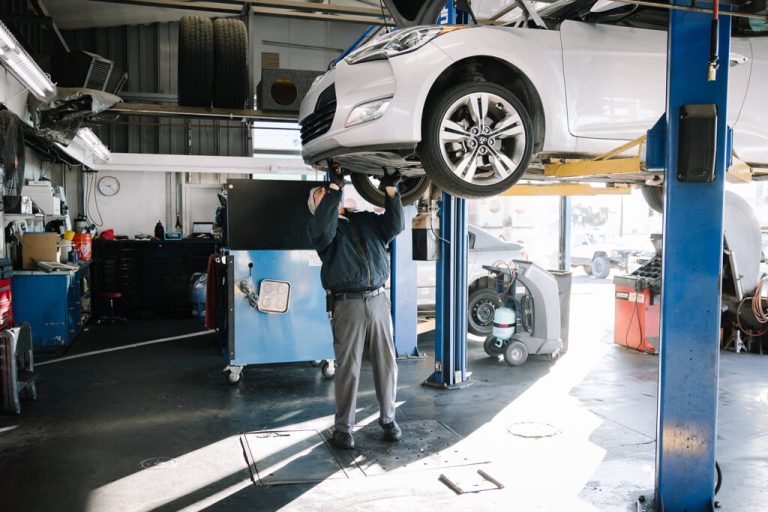
For many Americans, owning a reliable car is not just a convenience—it’s a necessity. Whether it’s getting to work, running errands, or taking your kids to school, the freedom and independence that come with having a vehicle are indispensable. However, for those in the subprime demographic or anyone experiencing financial hardship, car troubles can quickly escalate into major issues. Fortunately, there are government transport programs designed to lend a helping hand.
Understanding the Need: The Subprime Demographic
In the United States, millions of people fall into the subprime category. This means they have lower credit scores and are often unable to secure traditional loans for significant expenses, such as buying a new car or paying for costly repairs. Unsurprisingly, this demographic also includes a large number of benefit users—individuals relying on government assistance programs to make ends meet.
The Impact of Car Troubles
Car troubles can be debilitating for everyday Americans who rely on their vehicles for almost everything. From getting to work on time to accessing essential services, the inability to use your car can pose serious challenges. Here are a few common issues and their impacts:
- Job Security: Missing work due to car issues can put your job at risk.
- Healthcare Access: Reliable transportation is crucial for attending medical appointments.
- Childcare: Taking children to school or daycare becomes a significant challenge.
- Daily Errands: Shopping for groceries, attending social events, and running errands become stressful and time-consuming.
Luckily, several government transport programs aim to alleviate these burdens and provide much-needed assistance.
1. Temporary Assistance for Needy Families (TANF)
One of the most well-known assistance programs, TANF, offers more than just cash assistance. In many states, TANF funds can be used for vehicle repairs and even for purchasing a new car. If you’re already receiving TANF benefits, check with your local TANF office to see if any transportation-related assistance is available.
Eligibility: Low-income families with children, pregnant women, and in some states, non-parents caring for relatives’ children.
2. Job Access and Reverse Commute (JARC) Program
The JARC program aims to help low-income individuals get to work and back. While the program’s funding structure has changed over the years, many local transit authorities continue to offer services funded initially by JARC. These services include ride-sharing options, reduced fare programs, and even direct financial assistance for car repairs.
Eligibility: Low-income workers and those with limited public transportation options.
3. Community Action Agencies (CAAs)
Community Action Agencies across the country offer various services, including transportation assistance. These agencies aim to combat poverty and assist low-income individuals in achieving self-sufficiency. Some CAAs offer programs specifically designed to help with car repairs, provide gas vouchers, or even assist with car insurance payments.
Eligibility: Varies by agency; generally targeted at low-income individuals and families.
4. Non-Profit Organizations
Several non-profit organizations work collaboratively with government programs to offer car repair and transportation assistance. Organizations like 1-800-Charity Cars can provide donated vehicles to those in need, while Modest Needs offers grants to cover unexpected expenses like car repairs.
Eligibility: Varies by organization; generally targeted at low-income individuals and families.
How to Apply for Assistance
If you’re struggling with car troubles and think you may qualify for one of these programs, here are steps to get started:
- Research Local Programs: Start by researching what programs are available in your area. Your local Department of Human Services or Social Services office can be an excellent place to start.
- Gather Documentation: Be prepared to provide proof of income, residency, and other relevant documents that may be required for application.
- Fill Out Applications: Many of these programs require a formal application process. Make sure to fill out all necessary forms completely and accurately.
- Follow Up: After submitting your application, follow up to ensure it is being processed and to provide any additional information that may be requested.
Tips for Maintaining Your Car
While programs and assistance can help you get back on the road, maintaining your vehicle can prevent future problems. Here are some budget-friendly tips:
- Regular Maintenance: Simple tasks like oil changes, tire rotations, and regular inspections can go a long way in preventing major issues.
- DIY Repairs: For those who are handy, learning to do basic car repairs yourself can save you money.
- Use Quality Parts: When repairs are necessary, using good quality parts can prolong the life of your vehicle.
- Stay Informed: Keep up-to-date on vehicle recalls and service bulletins that may affect your car.
Car troubles don’t have to derail your life. By taking advantage of government transport programs and community resources, you can keep moving forward, even during tough times. Remember, these programs are designed to help you overcome challenges and achieve greater stability. Don’t hesitate to reach out and explore the options available to you.
Ready to get the assistance you need? Start by contacting your local agencies and researching programs available in your area. Keep your wheels turning and take control of your journey today!